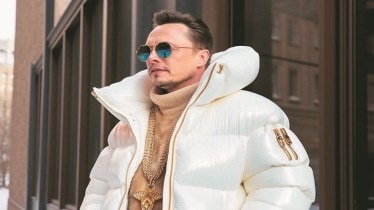While a few months back, we witnessed stunning AI-generated images featuring temples, beautiful landscapes and more, technology has evolved swiftly since then. Those brilliant yet visibly unrealistic images have been replaced by AI-generated hyper-realistic ones, such as the wildly viral picture of Pope Francis in a Balenciaga white puffer jacket. The image soon went viral on social media, with many believing it to be real. Elon Musk, too, shared an image of himself in a similar jacket. “Just borrowed my friend’s jacket wdyt (what do you think),” he wrote on Twitter.
Also read: Google is reportedly prepping potential Apple AirTag rival item tracker, launch tipped for I/0 2023
It is all fun and games until here. However, the technology that can put the head of the Catholic Church in a high-end jacket can also be used to generate distorted images for harassment and misinformation. Around the time Pope went viral on social media, another image surfaced, that of former US president Donald Trump being detained by the police dramatically. Evidently, the latter could be taken as sensitive given its political repercussions. Hence, it has become important to discern a real image from an AI-generated fake one. While news agencies, social media platforms, and individual fact-checkers do their bid, there are ways a user can do the same.
Here are some ways you can tell if an image is fake created by artificial intelligence (AI)
- One of the primary ways is to look at intricate details. Take the Pope’s case. In the deepfake image, he is holding a coffee mug in his right hand. But if you look closely, his palm is clenched and that is no way to hold a go-to coffee mug. Also, upon carefully looking at the cross hanging at his neck, one can notice that one side of the chain is completely missing.
- AI is good but not perfect. So look at facial inconsistencies, especially around sensitive regions like the edges of the face, mouse, and eyes, which you can notice might not align correctly.
- Also, focus on the lighting and shadows, which might appear inconsistent. AI is sophisticated but not so much to understand the intricate laws of physics.
- Also, the person’s facial expressions can be a discerning factor, which might not be consistent with the setting the person is in.
- Last but most importantly, check the source of the image. Ask yourself simple questions, like where did the image come from, where is it being shared and by whom, and does it align with the available information. Do the simple thing of going to the social media handle of the person concerned and seeing if the image has been shared by her or look for any related information. If that does not tell anything, go to news websites and see if they have termed the image as real or fake.
- Also, Google has a reverse image search tool. It helps you know where on the internet the image has been shared already and what are people talking about it. It can even help you to find the place where the image was initially shared and whether experts and reputed publications have deemed it authentic or fake.
- These simple things might not secure you 100% but will surely prevent you immensely from falling for such deepfake images.
The image of Pope was created using Midjourney v5, a less-than-a-year old platform that creates images based on short text prompts. Recently, it paused the free trial of its earlier versions. However, the decision was unrelated to the viral images, CNN reported.
Also read: iPhone 14 Plus selling at lowest price ever: How to buy Apple’s latest with Rs 13,901 discount
Although AI chatbots such as ChatGPT have already caused quite a stir in both tech and non-tech worlds, AI technology that generates images is different as images has the potential to invoke powerful emotions, making it difficult for the user to discern real from fake thus adding to the already prevailing problem of misinformation. Meanwhile, technocrats such as Musk and Apple co-founder Steve Wozniak have, in an open letter, asked AI labs to halt training powerful artificial intelligence systems for at least six months. They have cited “profound risks to society and humanity” as the reason behind the call. However, recent happenings do not hint at any halt to AI evolution.
